10+ Completely Different Views On The Great Fire Of Rome
Searching for the truth about our past is similar to trying to solve a case after arriving 2,000 years late.
We examine the evidence left behind, speak with witnesses, and make educated guesses—but we rarely know for sure what happened.
The Great Fire of Rome is one of the best illustrations of how twisted the truth can be.
We have a few stories and a few half-melted coinages buried beneath the ashes of ancient Rome, and we must sort through them to discover the truth.
It's difficult to say who caused the Great Fire of Rome or what happened as a result of it.
This narrative sparked the interest of every group, and every version has a political goal linked to it.
There are numerous versions of the narrative, and no one knows for certain who is speaking the truth.
1| Nero started the fire.
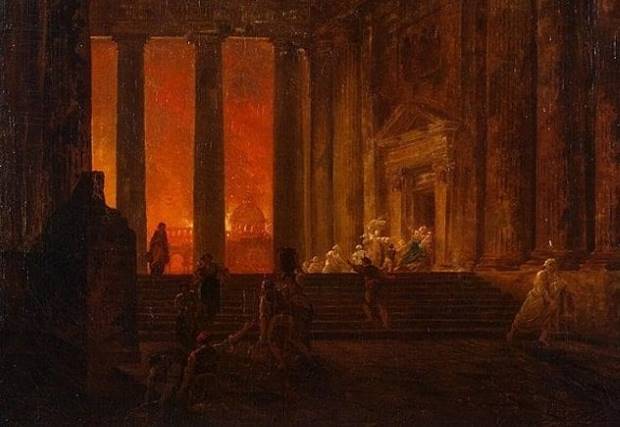
Photo credit: Hubert Robert
Nero always wanted Rome to burn, Nero always wanted Rome to burn.
He claimed Nero would say that a ruler who sees both his kingdom and his throne destroyed at the same time is "wonderfully lucky."
"He secretly dispatched men who pretended to be drunk," Dio explains, "and caused them to set fire to one or two, if not several buildings at first."
The fire grew faster than anyone could stop it, and the residents became panicked.
"People while helping their neighbors to save homes and properties by putting out the fires, would realize that even their own house and properties caught fire. They would be informed that they had been destroyed. It was happening to people one by one"
The majority of early Roman historians agreed with Dio. Pliny the Elder, who witnessed the fire personally, called it "Emperor Nero's holocaust,".
An unknown playwright, sometimes mistaken for Nero's advisor Seneca, created a play about Nero's life in which Nero promises that "the city's buildings must burn to flames set by me."
Another Roman historian, Suetonius, goes much further. He claims that Nero didn't bother to hide his involvement.
Nero just assumed he didn't like "the ugliness of the old buildings" and set fire to the city.
According to Suetonius, he even brought out siege weapons and knocked down any structures that didn't burn.
2| Christian Extremists Started The Fire
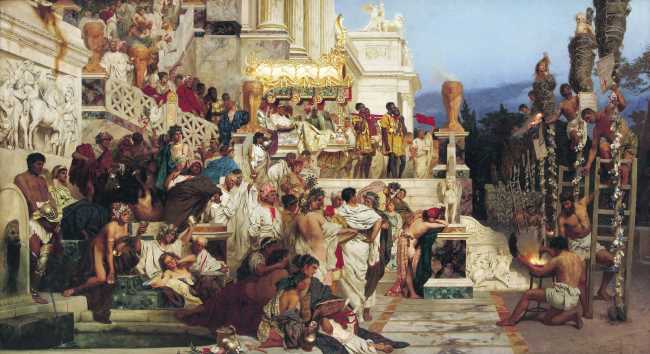
After the fire was controlled, Emperor Nero accused the Christians. Nero allegedly used them as scapegoats, but one historian, Gerhard Baudy, believes Nero was telling the truth.
Before the fire, Christians, according to Baudy, were passing out leaflets promising that Rome would be turned to ashes.
"It's a repeating topic: Rome must burn," adds Baudy. "This was the most awaited aim of all those who were suffered from the rule of Rome."
Baudy cannot authenticate the existence of pamphlets pledging to burn Rome, but he believes the concept fits the trend.
He claims that there are Biblical scriptures, particularly in Revelations, that criticize Rome and promise destruction by fire, demonstrating that this was a common theme in early Christian writing.
He claims that a forgotten Christian prophet predicted that July 19 would be the "day of the Lord," which corresponded to an ancient Egyptian prophecy that Rome would fall when the star Sirius rose into the sky—which occurred on the day the fire began.
Baudy believes that the Christians were aware of the prophecy and set fire to ensure that it came true.
3| While Rome burned, Nero played the lyre.
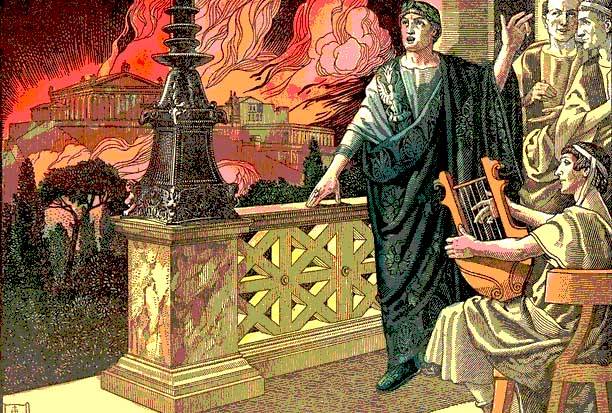
One of the most prominent narratives about the fire is that Nero just played his lyre and sang while Rome burned.
Cassius Dio tells the most in-depth version of a story.
"Nero climbed to the top of the palace's roof. He had the best common view of the firestorm from there, and assuming the lyre-garb, the player's he sang the "Capture of Troy."
He is claimed to have composed the song himself. Though to the enemies of the spectators made it the Capture of Rome," he says.
Suetonius agrees with him, but he modifies a few things. He places Nero on a different hill and has him sing the "Sack of Ilium" instead.
There have been enough modern historians who have rejected the lyre tale that it now appears in articles about historical mistakes, but the account appears in every single early version of the fire account.
That doesn't necessarily imply it happened, but it does indicate that many Romans were ready to believe it was.
4| It Was An Accident
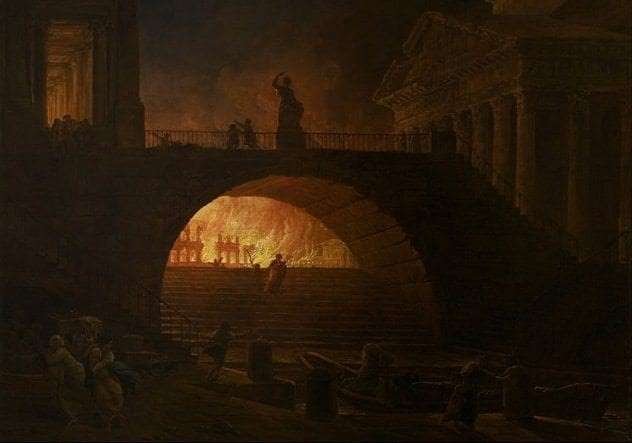
Photo credit: Hubert Robert
According to historian Eric Varner, "it appears dubious that Nero would have set the huge fire." After destroyed demolished his palace, "
Tacitus, a Roman historian, appears to have agreed. According to him, the fire started at a store.
It started in the area of the circus that adjoined the Caelian hills and Palatine, where the flames both broke out and quickly became so strong and rapid from the wind that it seized the entire length of the circus.
"The city of Rome was not built properly so, the fire became worsen than expected and spread very quickly."
5| It was a planned fire to help build a new city.
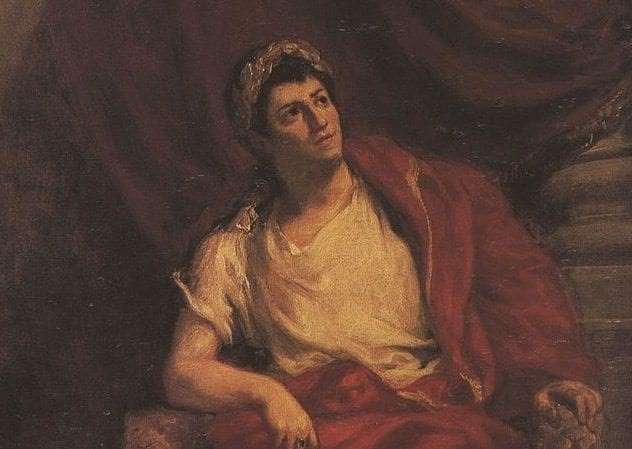
Photo credit: Eugene Delacroix
Andrea Carandini, an archaeologist, dismisses any attempt to shift blame away from Nero as a rewriting of history.
"This rehabilitation"—this process by which a small group of historians works to improve aristocrats into gentlemen—"seems very ludicrous to me," he argues.
Carandini supports a report mentioned by Tacitus at the time: "Nero was aiming at the glory of building a new city and calling it by his name."
He points to the extent of the disaster, believing Nero was torching the homes of the wealthy.
In some ways, the destruction of these houses marked the end of the aristocratic era in Romes," Carandini explains. "It signified the end of aristocratic Rome in many scenarios and aspects."
It was Nero who benefited from it. "Without fire, he was not able to build the Domus Aurea ?" Carandini asks questions.
"Whatever the cause of the fire, he certainly benefited from it."
6| As Nero was out of town, he sent a relief party.
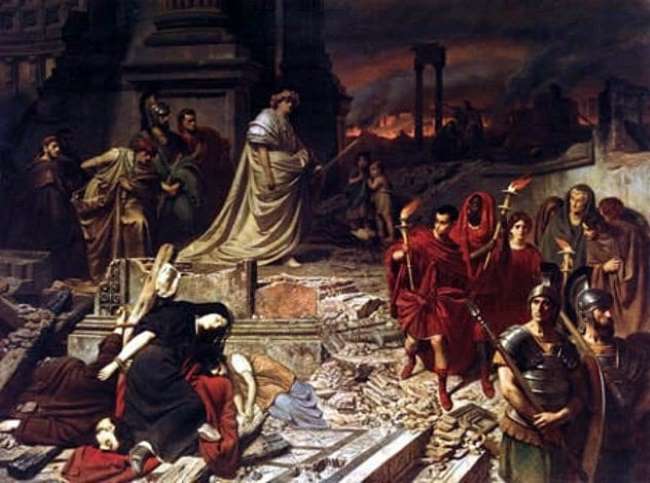
Photo credit: Carl Theodor von Piloty
Tacitus, on the other hand, claims that Nero could not have played the lyre. As per his claim, at the time of the fire, he wasn't even in Rome.
Tacitus believes he was at Antium at the time and went to Rome as soon as possible to make it.
However, by the time he arrived, his palace—the location where Dio claims he played the lyre—had already been destroyed.
Nero then organized a rescue operation. "He showed kind-heartedness while opening public buildings of Agrippa and the Campus Martius."
He even permitted people to shelter his personal gardens, Tacitus writes, "to shelter the people, which became homeless as they were, and erected temporary structures to shelter the indigent crowd."
"Ostia and surrounding cities were the main cities from which most foods were supplied to Rome. The rate of grain was decreased to 3 sesterces a peck."
All of his efforts to help his people, however, were in vain.
According to Tacitus, the myth that Nero was playing the lyre while Rome burnt had already circulated, according to Tacitus.
The populace had already turned against him by the time he arrived.
7| More fires have been started by Nero's Relief Party.
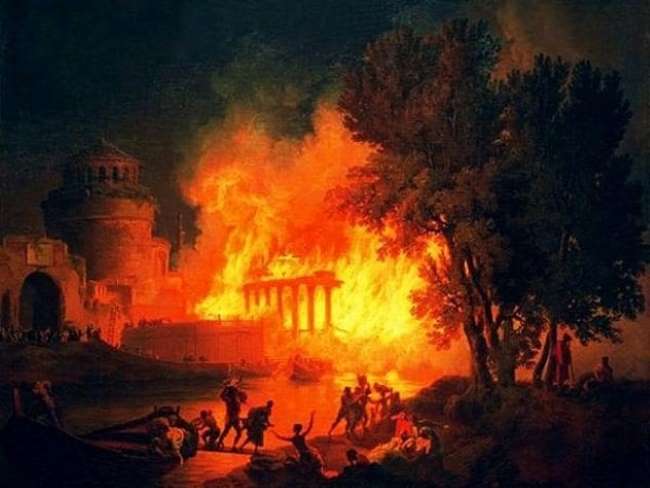
Photo credit: Archeoguidaroma
Cassius Dio disagrees with Nero's cooperation. He claims that Nero dispatched relief forces, but that they failed to rescue anyone.
They only contributed to the spread of the fire.
Dio adds that "several [houses] were set on fire by the same people who arrived to provide relief."
He claims that Nero's troops raced around town, lighting buildings on fire.
"He deployed his army to put out the fires, but they started new fires with an intention of robbery. They were mainly claimed as the night guard,"
Tacitus supports Dio's claim that people were inciting the fires to spread, but he isn't convinced that Nero ordered them.
"No one could resist to put out the fires because they were getting constantly threatened by a group which may be interconnected with the Nero," he claims.
Tacitus isn't sure who sent them, but they "kept proclaiming that there was one who gave them authorization, either trying to rob more freely, or obeying orders," he adds.
8| During Nero's reign, Christians were never punished.

Photo credit: Jan Styka
However, some modern historians deny that any of this actually took place.
Gordon Stein believes that the passage about Christians being used as scapegoats was not written by Tacitus. Later Christian writers, he believes, added it.
"During the reign of Nero which was of 1st century. Stein here mentions that the term 'Christian' was not popular or widely known.
This passage's word choice, according to Stein, is out of character for both Tacitus and the time period in which he lived.
"Tacitus avoided describing the name "Jesus". He writes as if the reader is quite familiar with the name Pontius Pilate.
He indicates that he was not working from official documents (manuscripts) or writing for non-Christian audiences."
Stein, on the other hand, claims it was taken from another source.
"The passage appears almost line for line in the Chronicle of Sulpicius Severus (died in 403 A.D. ), where it is combined together with clearly fabricated stories."
This paragraph, according to Stein, gives a very frightening impression.
It was added hundreds of years after the Great Fire. Tacitus had copied the sentence from Sulpicius, he claims, during the Dark Ages..."
9| Nero pinned all the blame on the Christians.
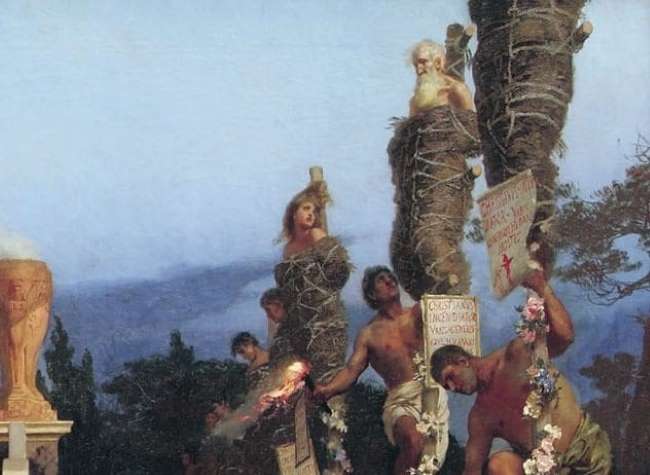
Photo credit: Henryk Siemiradzki
Tacitus states that after the fire, Nero needed a scapegoat.
Everyone blamed him for the fire, but "Nero anchored the responsibility and inflicted the cruelest torture and abuse on a class loathed for their abominations, termed Christians by the masses," as a misdirection.
According to Tacitus, this marked the start of the persecution of Christians.
"All the those (Christians) who confessed to guilt for this crime were arrested at first, he describes.
"They were subjected to every form of humiliation available till their deaths, They were hung to crosses, covered in beast skins, and torn apart by dogs.
They were inhumanly sentenced to the flames and burned at night. It served as a "night lamp" when daytime (daylight) had passed."
Other Romans mention the persecution of Christians, but they do not directly link it to the fire, as Tacitus did.
Suetonius praises Nero for torturing the Christians, writing, "Punishment was imposed on the Christians, a class of men given to a new and mischievous religion."
A letter addressed by Pliny the Younger to the Roman emperor Trajan, inquiring how he should deal with Christians, is also still intact.
Should he punish every Christian, including those who have committed no crimes, or just those who have committed misdeeds associated with the name, he asks?
10| It Is Impossible to Know the Truth
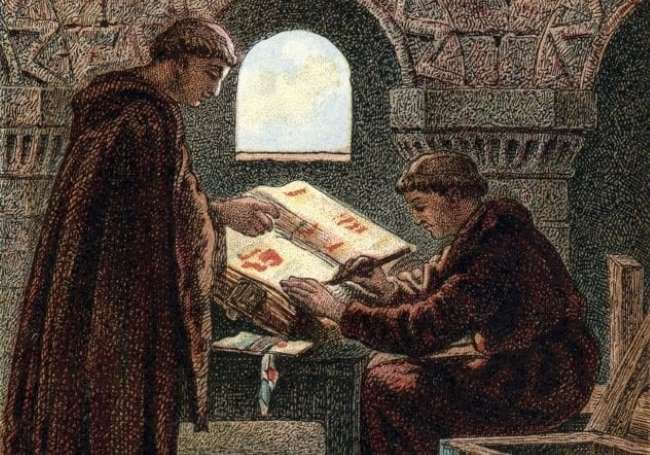
Flavius Josephus, a Jewish historian, wrote a brief history of Nero, but he didn't mention the Great Fire of Rome.
"I don't have anything further to say about these matters," Josephus said.
He didn't think it was worth his time to dig into Nero's life.
"A great many have written the history of Nero," he said. "Some of them have hidden the truth, others have deviated from the facts, and others have gained from him;.
The profound suffering which they bearing him, have so contemptuously raved against him with their lies."
According to Josephus, the history of Nero is so contaminated with bias and falsehood that it is impossible, to tell the truth, and is no longer worth writing about.
"For someone who has no concern for facts may write whatever they want to," Josephus says."
FAQ
Started on 18 Jul 64 AD and ended on 23 Jul 64 AD
On 18 Jul 64 AD
Nero
Nero blamed Christians for the Great Fire of Rome.